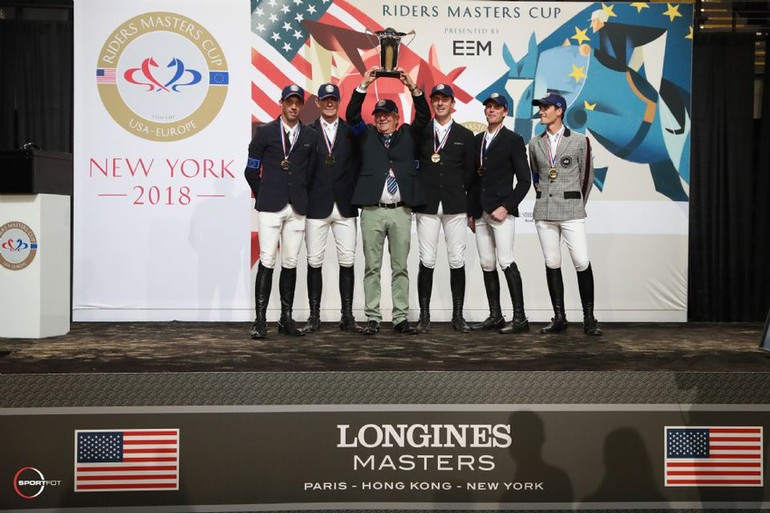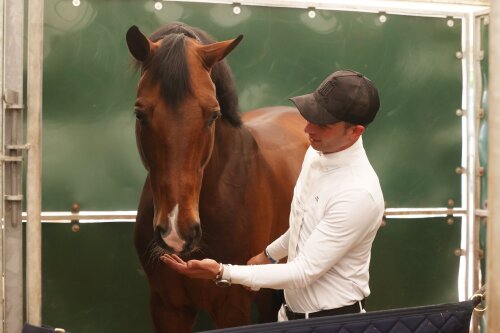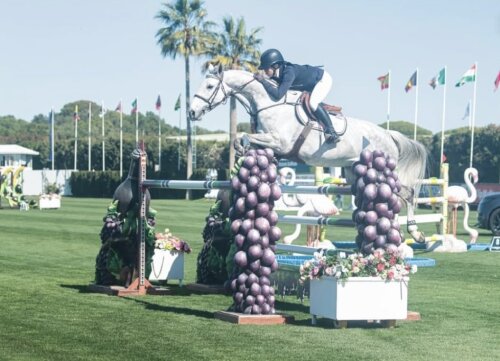For its fifth edition, the Riders Masters Cup, organized as part of the Longines Masters of Paris, is evolving. Let’s meet on December 6, at the Longines Masters of Paris, to discover a new and extended version of the competition.
Launched in 2017 at the initiative of EEM with Longines as a Founding Partner, the Riders Masters Cup is a unique competition. Presented in conjunction with the EEF (European Equestrian Federation), and hosted alternately in Europe and the United States, this battle has so far pitted the two superpowers of world show jumping powers against each other: Europe and the United States. But, after four European victories, the cards have been reshuffled in 2019, and the competition will now be between Europe... and the Americas. European riders had better watch out! #RIDERSEurope vs #RIDERSAmericas
The line-up of riders is entrusted to each of the two teams’ chefs d’équipe: Robert Ridland, coach of the United States, for the Americas, and Henrik Ankarcrona, coach of Sweden, for Europe. A spectacular and strategic competition, the Riders Masters Cup pits five riders from each team against each other in two rounds, or ten duels. The first round is played on timed Table A rules, over a Grand Prix course. The starting order and the composition of the duels are decided by draw. Each duel won in this first round earns the team 10 points. In the second round under Table C, the chefs d’équipe’s strategy and choices are crucial. In particular, they may, if they so wish, assign riders new mounts more suitable for speed events. The chef d’équipe of the losing team in the first set designates the first rider to start; the leading team then has the advantage of choosing the opponent to run against this first rider. The choice of the second, third, fourth and fifth riders is made by the leaders of the winning and losing teams in alternating manner. In the second set, each duel won earns 20 points.
For this new edition of the Riders Masters Cup, each team will be supported by an exceptional rider: Marcel Rozier, Olympic team champion with France in 1976, for the European team and Nelson Pessoa, the great Brazilian winner of many events around the world, for the America’s team.



